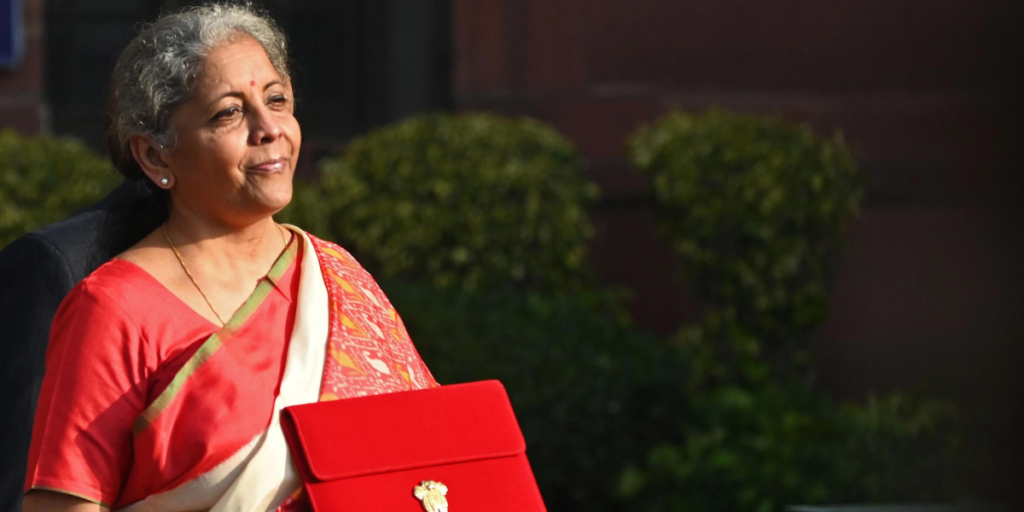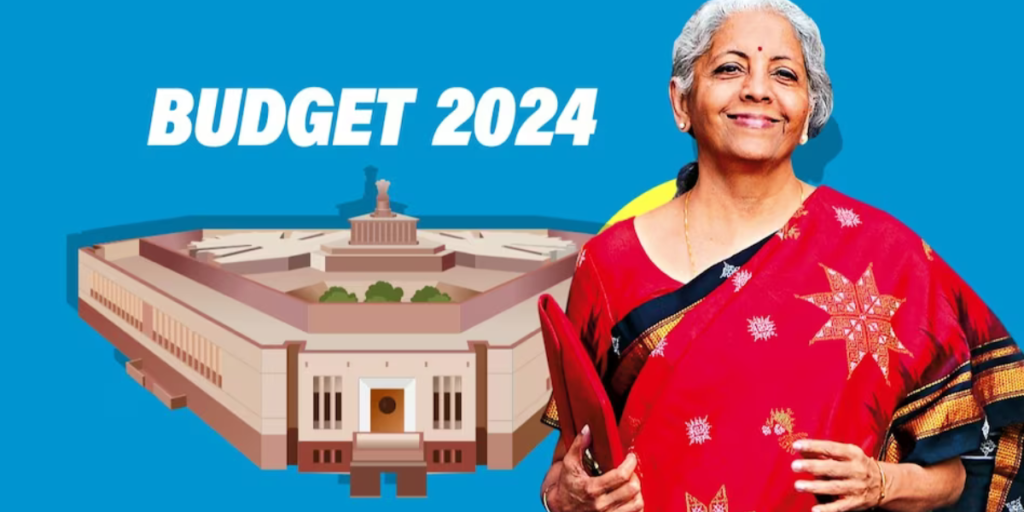Budget 2024, presented by Finance Minister Nirmala Sitharaman, has underscored a dedicated focus on empowering women in India. The cornerstone of this commitment is the expansion of the ‘Lakhpati Didi’ scheme, an initiative designed to bring sustainable income opportunities to women through self-help groups (SHGs). This blog post explores the multifaceted aspects of Budget 2024, delving into the ‘Lakhpati Didi’ scheme and other key announcements that collectively aim to uplift and empower women across the nation.

Table of Contents
Empowering Women: The ‘Lakhpati Didi’ Initiative
The ‘Lakhpati Didi’ scheme, unveiled during Prime Minister Narendra Modi’s Independence Day speech last year, aims to revolutionize the socio-economic landscape of rural India. The focus is on providing skill development training to women in villages, with an ambitious target of 3 crore ‘Lakhpati Didis’ earning a sustainable income of at least one lakh rupees annually. This section explores the inception, goals, and success stories of the initiative.
Skill Development for Economic Empowerment under Budget 2024
A core component of the ‘Lakhpati Didi’ initiative is skill development. Women in self-help groups are provided training in practical skills such as plumbing, LED bulb making, and drone operations. The section details the importance of these skills in enhancing women’s economic independence and contributing to the overall development of rural communities.
Target Enhancement: From 2 Crore to 3 Crore ‘Lakhpati Didis‘
Finance Minister Nirmala Sitharaman’s announcement to increase the target from 2 crore to 3 crore ‘Lakhpati Didis’ underscores the success and impact of the initiative. This section explores the rationale behind the target enhancement and discusses the potential socio-economic implications of reaching this ambitious goal.

Key Budget Announcements for Women’s Well-being
Budget 2024 extends its support for women’s well-being beyond the ‘Lakhpati Didi’ initiative. One significant announcement is the extension of healthcare insurance coverage under the Ayushman Bharat scheme to all anganwadi and ASHA workers. This section delves into the details of this announcement and its potential impact on the health and welfare of women at the grassroots level.
Women’s Empowerment in Education and STEM
A noteworthy aspect of Budget 2024 is the focus on women’s empowerment in education. Female enrollment in higher education has witnessed a commendable 28% increase in the last decade. The budget highlights the success in STEM courses, where girls and women make up 43% of the enrollment, positioning India as a global leader in gender-inclusive education.
Legal and Political Empowerment
The budget addresses key issues related to legal and political empowerment. The prohibition of triple talaq and the reservation of one-third of seats for women in Parliament and state assemblies are crucial steps towards creating a more inclusive and representative political landscape. This section explores the significance of these measures in fostering gender equality in governance.
Women in the Workforce: Trends and Progress
An analysis of the increasing participation of women in the workforce is essential in understanding the broader impact of Budget 2024. Various measures, including the allocation of over 70% of houses under the PM Awas Yojana to women, contribute to enhancing the dignity and quality of life for women in the workforce. This section assesses trends, progress, and the potential economic implications of these measures.

A Comprehensive Approach to Women’s Empowerment
Connecting the dots between various initiatives and announcements reveals a holistic approach to women’s empowerment in Budget 2024. This section explores the synergies and collaborative efforts aimed at creating a comprehensive framework for the development and empowerment of women in India.
Challenges and Opportunities in Women’s Empowerment
Identifying challenges and opportunities is crucial for ensuring the effectiveness of budgetary allocations. This section examines areas that may require further attention and suggests ways to leverage budgetary allocations for maximum impact in the long term.
Public Response and Stakeholder Perspectives
Understanding public response and stakeholder perspectives is vital for gauging the success of budgetary initiatives. This section aggregates reactions from women’s advocacy groups, analyzes the impact of budgetary measures, and considers recommendations for future initiatives from diverse perspectives.
Conclusion: A Transformative Path Forward
As we reflect on Budget 2024, it is evident that the government has taken a transformative path toward empowering women in India. The ‘Lakhpati Didi’ scheme, along with other key announcements, has the potential to significantly impact the lives of women, fostering economic independence and contributing to a more inclusive and equitable society. This section concludes by emphasizing the need for continued support, collaboration, and an unwavering commitment to realizing the goals set forth in this transformative budget.

The road ahead involves sustained efforts in implementing and monitoring the various initiatives outlined in Budget 2024. This section discusses the importance of continuous evaluation, adaptability to changing circumstances, and the need for a collective effort from all stakeholders to ensure the long-term success of women’s empowerment programs in India.

